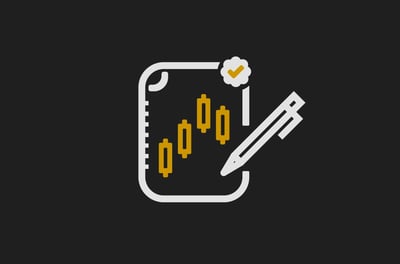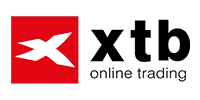FOREX Broker Regulation Guide 2026
Six Roles Regulatory Bodies Play in the FOREX Market
Managing, observing and supervising the conduct of FOREX brokers.
Putting in place the rules and regulations that guarantee the rights of traders and brokers alike.
Ensuring transparency and accountability in all operations.
Safeguarding against fraud and scam activity.
Looking at the complaints put forward by traders and taking firm actions where applicable.
Penalizing violators of good conduct and governance by imposing heavy fines and/or closing down companies altogether.
Examples of top FOREX trading regulatory bodies include the National Futures Association (NFA) in the US, the Financial Conduct Authority (FCA) in the UK, the Australian Securities and Investments Commission (ASIC), the Swiss Financial Market Supervisory Authority (FINMA) in Switzerland, and the Cyprus Exchange and Securities Commission (CySEC).
The NFA
The NFA is a self-regulatory organization for the US derivatives industry. This includes on-exchange traded futures, retail off-exchange foreign currency (FOREX) and over-the-counter (OTC) derivatives (Swaps). The NFA is headquartered in Chicago and maintains an office in New York City. The NFA is a non-profit, independent regulatory organization. The organization does not operate any markets and is not a trade association. The NFA operates at no cost to the taxpayer and is primarily financed by membership dues, fees, and assessments paid by members and other participants of the derivatives markets.
Membership of the NFA is mandatory, thereby guaranteeing that everyone conducting business with the public on US futures exchanges and in the retail FOREX marketplaces must adhere to the same standards and requirements. NFA membership is also mandatory for swap dealers and major swap participants. The NFA’s membership currently numbers over 4,000 firms and 55,000 associates
The FCA
While the FCA is the financial regulatory body for the UK, it operates independently of the British government (only reporting to parliament) and is financed by fees collected from members of the financial services industry. The FCA regulates financial firms providing services to consumers and maintains the integrity and transparency of the financial markets in the UK.
Each UK-domiciled FOREX broker should be licensed by the FCA. Details for this are easily accessible on FOREX companies’ websites, with each carrying a register number. In cases where a company claims it is licensed by the FCA, you can easily verify this information by visiting the FCA website. If you find results, then the company’s claims of licensing are legitimate. Otherwise, the company in question is not licensed by the FCA and should always be avoided.

The ASIC
- Corporations Act of 2001.
- Insurance Contracts Act of 1984.
- National Consumer Credit Protection Act of 2009.
The FINMA
The CySEC
- To supervise and control the operation of the Cyprus Stock Exchange and the transactions carried out on the bourse, its listed companies, brokers and brokerage firms.
- To supervise and control Licensed Investment Services Companies, Collective Investment funds, investment consultants, and mutual fund management companies.
- To grant operation licenses to investment firms, including investment consultants, brokerage firms and brokers.
- To impose administrative sanctions and disciplinary penalties to brokers, brokerage firms, investment consultants, as well as to any other legal or natural person who falls under the provisions of the stock market legislation.
Who is Arincen and What Are Our Services?
Put simply, Arincen is a social networking platform that brings together traders and experts to exchange expertise and ideas. Collectively, we evaluate the best FOREX companies in the world while offering a comprehensive suite of services and tools, all in one place, either via a personal computer or a mobile app. Arincen offers a wide range of services, which include:
Live FOREX rates.
The latest in FOREX signals.
Technical analysis.
An online trading academy.
An up-to-date economic calendar.
The platform is so rich that you can create your own private portfolio of traders and experts that you like and follow their recommendations and investment sentiments.
Further, thanks to Arincen, users can keep an eye on market-price developments, as well as the latest news. Users can also benefit from the network’s educational courses, to say nothing of the exciting Webinars – all done in a modern and fast-paced work environment. Get everything you need in one place. Arincen: We Meet to Simplify the Trading World.

Conclusion
In short, efficient financial regulation gives FOREX traders much-needed peace of mind. If no such regulatory bodies existed, scammers in the FOREX market would be out-of-control and unscrupulous brokers whose sole aim is to defraud traders would spring up. However, even with proper regulations in place, deep-rooted FOREX brokers occasionally engage in fraudulent activities to con traders. It is worthwhile to cross-examine a broker’s license before registering for a trading account, if anything, to ensure your investment remains safe. Put simply, the major benefits of regulatory agencies are that they assist in standardizing the way FOREX traders are treated. They work to ensure fair markets, and they treat the safety of invested funds as a priority.






